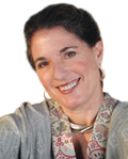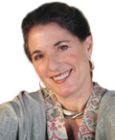
Openness
Lead by Listening
How humility, openness, and listening is better than a sense of knowing.
Posted July 6, 2017
This is the time of year when new graduates dust off their diplomas and prepare to join the real world.
Most graduation speeches congratulate the graduates and say something to the effect of: “This is the first day of the rest of your life.”
Dr. Elizabeth Wake, however, did not say this in her proposed graduation speech. In her speech, she urged all graduates to unlearn much of what they learned, and instead practice humility, openness, and careful listening. Dr. Wake implicitly critiqued traditional psychology training by pointing out that it may fill the student with information and a false sense of knowing. Seeing a clinical situation in terms of a preconceived structure may actually make the new clinician unable to see the situation as it really is. Or the person in her or his humanity.
My training in the “old days” of the 70s by Laura Perls (of the New York Gestalt Institute), in Buddhist, depth, and humanistic psychologies, taught me to see and relate to the whole person. Not their symptoms only. Nor their pathologies. To let the story emerge within the context of a trusting relationship.
It seems to me these days that psychology is what I think of as the “alphabet soup” of psychologies. This is the age of branding, of aiming for technical excellence, clear outcome measures, and scaling by creating training programs. Therefore, I was impressed to read Dr. Wake’s articulation of her experience as a graduate student and her recommendations.
If all graduate schools could turn out students like Dr. Wake who question and take psychology seriously, our profession would be in good shape.
Below is her proposed speech:

This is an ironic topic for a speech. It’s about knowing when to stop talking and start listening.
Have you ever noticed that we listen to some voices, but we ignore others? We’ve all had times when our voices weren’t listened to. Do you remember how that felt?
At times we elevate people because of experience, education, or life circumstances. Sometimes when we become an expert in a field, there’s a temptation to discount the knowledge that non-experts have or to think we have nothing left to learn. This is a fallacy because all human beings have knowledge, especially about their own experiences.
For example, my dissertation was on children’s happiness. I wanted to interview children about their experiences because I noticed that their voices were absent from the empirical literature on happiness. While researching the topic, I called a well-known sociologist who has published books on children’s happiness. She told me, “You won’t learn anything by going around talking to eight-year-olds.” She did not value the voices of the very people she wrote about.
Turns out children can tell you about their happiness, you just have to figure out how to ask them. And their answers aren’t superficial. They’re about connecting to others, demonstrating competency, and exploring or learning.
As a social scientist, as a human being, as a professional person, if we encounter knowledge that excludes a population, let’s ask ourselves, “Why? Why have we discounted their knowledge?” If you’ve been on a pedestal for a while, step down periodically and remind those around you that you’re only human. Listen to them, especially to those who don’t have a microphone or a pedestal. They still know things.
It’s easy to fall into the trap of thinking we have the answers and to stop listening. For example, a seasoned therapist I know, without realizing it, began to fill in the blanks of her clients’ stories. Until one day, an assertive patient said, “Stop! This is my story, let me tell it.” We all need to be reminded to stop and listen. To humble ourselves.
I need this reminder too. I was at Stinson Beach with my daughter, Iris, who’s seven, and she told me she saw dolphins jumping out of the water. I didn’t listen to her until an adult in front of me shouted, “She’s right! There’s a dolphin! I just thought that kid has an active imagination!” Every human being has value and knowledge. Let’s stop and listen.
In my experience, the people who use their education most effectively are those who take the time and energy to listen and relate to others and then apply their expertise.
For example, in February, I was in a life-threatening medical situation. The doctor who gained my trust was the one who took the time to listen to me. She considered my perspective and then shared her expertise in a way she felt would be helpful for me. By sharing her knowledge she empowered me to make a decision that was best for me. I felt valued. I listened to her over others who were equally qualified because she first stopped to listen to me. She put all her facts aside. She knew when to listen. She knew when to be human. She didn’t educate herself out of her humanity.
I congratulate you on the degree you have earned today. We can all be proud of our accomplishments and ourselves. With this degree you’re being awarded today, your voice may be louder than some. Now your voice will be amplified. How will you use your education to connect with others?
Education is both an accomplishment and a privilege. It carries an obligation to be careful about how you use the power of your voice. These degrees we are earning today do not separate us into some group of “valuable” people who therefore deserve to be listened to. You were born valuable. You are valuable because you have lived a life, not because you have a degree. Let’s not educate our selves out of our humanity. We are all human. Now you have an extra obligation to listen to others, to lead by listening.



